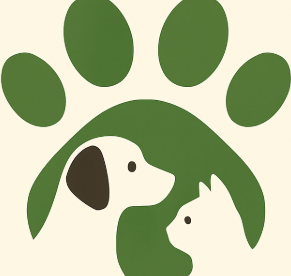
Understanding the Shift to Specialized Animal Care
In the world of veterinary medicine, the role of a veterinarian has evolved significantly, especially regarding the care of older animals. As noted by Dr. Caitlin in her journey, the shift from primary animal healthcare to more specialized care has been a challenging yet rewarding transition. This evolution can be highlighted through her experience in private practice, where she now encounters cases of kidney failure, cancer, and other critical health conditions that were less prevalent in her previous role. In areas where animal healthcare focused largely on survival, there wasn’t a pressing need to address the nuanced healthcare requirements of aging pets.
In 'From Survival to Specialised Care: Dr. Caitlin’s Vet Journey,' the discussion dives into the evolving landscape of veterinary practice, exploring key insights that sparked deeper analysis on our end.
Why Older Pets Deserve Specialized Care
As pet lovers, we tend to view our furry friends as family members. Thus, as they age and develop complex health issues, they require more than just basic care. Specialized veterinary practices have emerged to accommodate this need, allowing pet owners to ensure their older animals receive the necessary treatments to improve their quality of life. This not only caters to the physical health of these animals but also aids in managing the emotional well-being of their owners during potentially difficult transitions.
Learning from Real Experiences
Dr. Caitlin’s journey into specialized veterinary care serves as a compelling example for pet owners. Her transition highlights the significant emotional and physical shifts older pets face, which many owners may not fully understand. For instance, recognizing the signs of kidney failure or understanding cancer treatment options are crucial for ensuring a pet’s comfort and happiness. By sharing her experiences, Dr. Caitlin encourages pet owners to be proactive and informed about their pets’ health needs.
Supporting Our Aging Pets: Actionable Insights
Pet lovers can take some proactive steps when it comes to caring for aging pets. Regular check-ups with a veterinarian, especially as pets surpass the typical life expectancy for their breed, are essential. Furthermore, exploring dietary modifications can contribute positively to their health. Nutritional adjustments that align with their specific age-related needs can help manage various conditions and improve overall vitality.
The Future of Pet Care: Trends in Veterinary Medicine
The veterinary landscape is changing dramatically. With advancements in technology and a growing awareness of specialized animal healthcare, more vets are pursuing further education in this field. Future trends may include the integration of more holistic approaches, combining traditional medicine with alternative therapies to provide well-rounded care for older pets. As pet owners become more educated about veterinary options, they will play a crucial role in demanding better care from veterinary practices.
Emotional Connection: The Bonds We Share with Our Pets
It’s essential to acknowledge the emotional bonds that pet owners have with their aging companions. As pets grow older, they may require more attention and care, leading to feelings of stress and anxiety for owners. Understanding this emotional aspect can help in approaching veterinary care with compassion, considering not just the health of the pet but the overall family dynamic as well.
If you are a pet owner navigating the complexities of caring for an older animal, take inspiration from Dr. Caitlin’s story. Prioritize understanding their unique health needs and seek out specialized veterinary care to ensure they live their best lives. Remember, advocating for your pet’s health not only supports their well-being but also enriches the bond you share.
 Add Row
Add Row  Add
Add 




 Add Row
Add Row  Add
Add 

Write A Comment